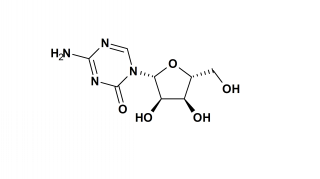Byline: N. Ananthakrishnan
National workshops on good clinical practices and regulatory requirements for clinical trails in India, Training Manual by Dr. Urmila Thatte and Dr. Renuka Kulkarni. Published by Department of Clinical Pharmacology, TN Medical College and BYL Nair Ch. Hospital, Mumbai.
With an increasing number of molecules being released for clinical trials by drug companies, there is a great pressure on investigators in India to participate in such trials for one of two reasons: (a) a perception that in view of prevailing health status, recruitment of sufficient number of patients will not be a problem and can be quickly achieved within the target period and (b) a feeling that regulatory requirements are less stringent in India than in developed countries making possible trials which would have had difficulty in taking off elsewhere.
In this context, there is an urgent need for a training manual for familiarizing investigators and other concerned players on good clinical practice and regulatory requirements for clinical trails in India. Although these guidelines are available as separate publications, it would be useful to have them all accessible for consultation at one site in one volume. Current level of knowledge across the breath of the profession lacks depth in this area. Many medical institutions do not even have a properly constituted Ethics Committee.
The training manual entitled "National Workshops on Good Clinical Practice and Regulatory Requirements for Clinical Trials in India" prepared by the Central Drugs Standard Control Organization; and co-ordinated by the Department of Clinical Pharmacology, TN Medical College & BYL Nair Ch. Hospital, Mumbai goes a long way in fulfilling this vital need. The authors have focused their attention on all four major players in this field viz. Investigators, ethics committee members, regulators and sponsors. Each section is classified into introduction, specific objectives resource material, group tasks and tests. The material is lucidly presented with important concepts being highlighted in boxes. References are provided when required. The manual is supplied along with a CD which contains the full text of the presentation and the current regulatory guidelines. The information provided is systematic and comprehensive and the step by step approach adopted will greatly facilitate organizations of such workshops at other sites. Case studies with common mistakes along with correct responses provided by the authors will facilitate learning.
I found all sections of the manual extremely informative. In fact, I could not find much that is worthy of criticism in the content or presentation. I feel that the Training Manual is a "must have" for all scientific institutions and regulatory agencies besides being a valuable adjunct to all medical institution libraries.
References
1. Issa JJ, Kantarjian HM, Kirkpatrick P. Azacitidine. Nat Rev 2005;4:275-6.
2. Leone G, Voso MT, Teofili L, Lubbert M Inhibitors of DNA methylation in the treatment of hematological malignancies and MDS. Clin Immunol 2003;109:89-102.
3. Jones PA, Taylor SM, Wilson VL Inhibition of DNA methylation by 5-azacytidine. Recent Results Cancer Res. 1983;84:202-11.
4. Glover AB, Leyland-Jones B. Biochemistry of azacitidine: A review. Cancer Treat Rep 1987;71:959-64.
5. Glover AB, Leyland-Jones BR, Chun HG, Davies B, Hoth DF. Azacitidine: 10 years later. Cancer Treat Rep 1987;71:737-46.
6. Cameron EE, Bachman KE, Myohanen S, Herman JG, Baylin SB. Synergy of demethylation and histone deacetylase inhibition in the re-expression of genes silenced in cancer. Nat Genet. 1999;21:103-7.
7. Narayan A, Ji W, Zhang XY, Marrogi A, Graff JR, Baylin SB, et al . Hypomethylation of pericentromeric DNA in breast adenocarcinomas. Int J Cancer. 1998;77:833-8.
8. Richardson BC, Liebling MR, Hudson JL. CD4+. Cells treated with DNA methylation inhibitors induce autologous B cell differentiation. Clin Immunol Immunopathol 1990;55:368-81.
9. Kaminskas E, Farrell AT, Wang Y, Sridhara R, Pazdur R. FDA Drug approval summary: Azacitidine (5-azacytidine, vidaza) for injectable suspension. The Oncologist 2005;10:176-82.
10. Santini V, Kantarjian HM, Issa JP. Changes in DNA methylation in neoplasia: Pathophysiology and therapeutic implications. Ann Intern Med 2001;3::573-86.
11. Silverman LR, Demakos EP, Peterson BL, Kornblith AB, Holland JC, Odchimar-Reissig R. Randomized controlled trial of azacitidine in patients with the myelodysplastic syndrome: a study of the cancer and leukemia group Br J Clin Oncol 2002;20:2429-40.
12. Silverman LR, Holland JF, Demakos EP. Azacitidine in myelodysplastic syndrome. CALGB studies 8921and 8921. Ann Hematol 1994;68:12.
13. Silverman LR, Holland JF, ELLISON RR. Low dose continous infusion azacitidine is an effective thearapy for patients with myelodysplastic syndrome, a study of cancer and leukemia group. Br J Cancer Res Clin Oncol 1990;116:816.
COPYRIGHT 2005 Medknow Publications
COPYRIGHT 2005 Gale Group



